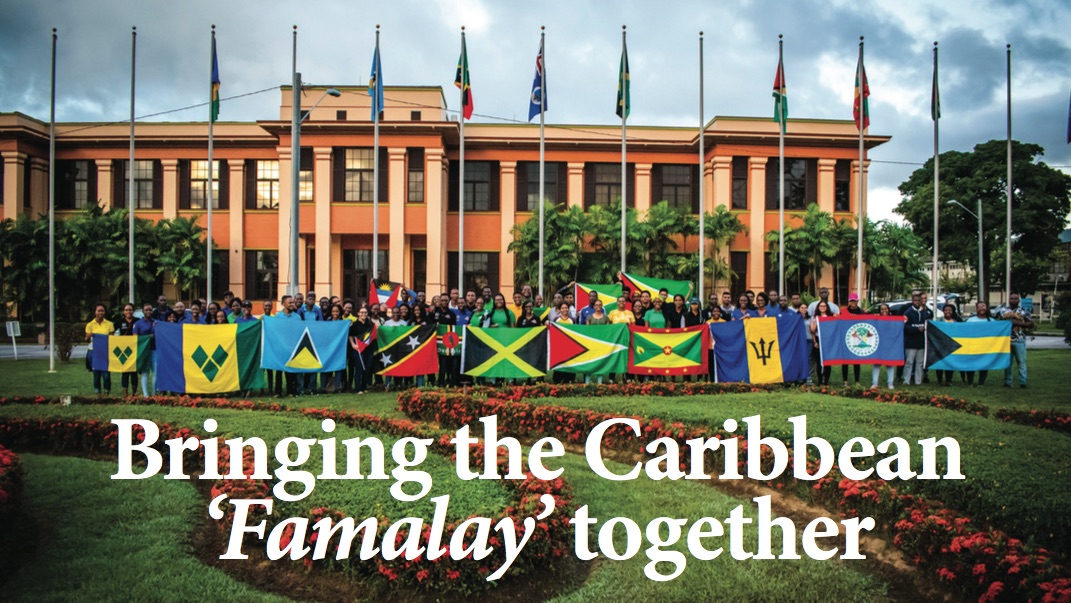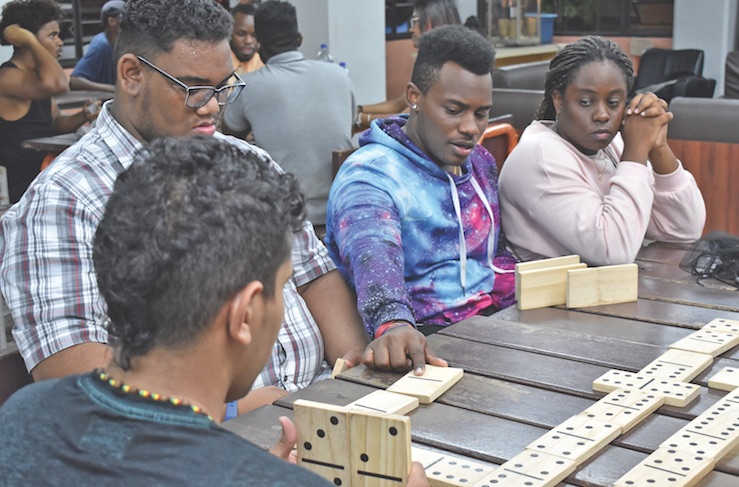
It's 6 am, Sunday morning. Dark figures move towards the Old Administration Building, to the now bare flagpoles. Before long, these figures organise themselves into groups in front of the flagpoles, where 14 national flags will be hoisted to the tune of each country’s national anthem.
This is how the annual Caribbean Integration Week (CIW) began at the St Augustine Campus of The University of the West Indies. By the end of this exercise, the image of all the groups joined together, replete with their flags on full display, is perhaps the best illustration of the Caribbean ‘Famalay’.
An annual flagship event, CIW allows culture, education, and entertainment to intersect, fostering a deeper sense of regional integration while promoting the rich, diverse culture of the Caribbean.
“CIW’s philosophy stems from the reality that we need to build camaraderie amongst ourselves as a region,” explained Kareem Charles, the incumbent International Affairs Committee (IAC) Chairperson, under The UWI Guild of Students. IAC is mandated to promote the interest of regional and International students as they navigate their academic life at UWI.
So it was that, from January 26 to 31, the Guild’s national associations joined hands with the IAC to promote and share their individual cultures. This process began with ‘Fi D’ culture’, the night where representatives of each country made a short cultural presentation.
The greens by the “I am UWI” mural at the Student Activity Centre has slowly but surely become the niche space on campus where regional students gather to indulge in each other’s culture. Here, students of the Grenada Students Association got the night going with their eloquent drama piece of Grenadian folklore, while the Jamaican Student Association capped the night off with “good vibes” from Tessanne Chin, Bob Marley and Koffee.
On the second day, students turned their attention to the intrinsic vulnerabilities of individual nations in the Caribbean in grappling with climate change via a panel discussion on “Building a more resilient Caribbean”.
These two events might seem incongruent but a deeper examination would allow the understanding that they both function to address the major tenets of sustainability and preservation in the region. Kareem noted the imperative for UWI students to understand the varying contexts in which they live and how these contexts add to the developmental narrative of the wider Caribbean.

“When persons hear the term ‘integration’ or ‘regional integration’, they often reflect upon the attempts made to unify the Caribbean in a more economic and political sense through the West Indies Federation and, later, the Caribbean Community (CARICOM)”. The Chairperson, a final year International Relations student, indicated that integration is a “core fundamental value”. He believes that once this value is embedded within a person, it can be externally manifested.
Integration does not only occur in formal spaces. CIW proved that each interaction, including games night, sports fundayandthehighlyanticipated‘PumpyuhFlag’boatcruise which ended the week of activities, was valuable. Whether it was in competition with each other or working towards winning complimentary PYF tickets, each activity was microcosmic of the engagement that should be pervasive in the Region.
Dominic Tyrrell, a regional student and performer at Fi D’ Culture, shared his enjoyment of the week, especially his exposure to the culture of many Caribbean islands. His only contention was that these events should be tailored to allow Trinidad and Tobago students to revel in the activities to a greater extent. Most events took place in the evenings or at nights so that the crowd primarily consisted of students who lived on or near campus.
CIW is not exclusive to regional students but rather all students are encouraged to come out and add to the efforts at promoting integration. Kareem committed to ensuring that the incoming IAC would redouble their efforts to reciprocally integrating Trinidad and Tobago students as they seek to integrate students of the region.
“As the future leaders of the Caribbean, one aspect for us moving forward is becoming more integrated.”